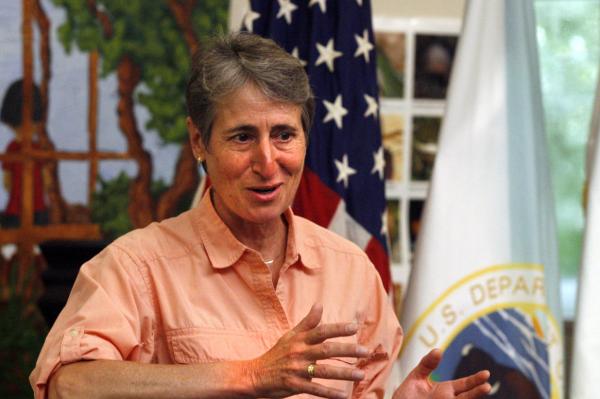
WASHINGTON, April 15 — With new offshore rules in place, a U.S. energy group said jobs and safety are at risk, though environmentalists said the BP spill in 2010 was still impactful.
The Interior Department’s Bureau of Safety and Environmental Enforcement released new rules aimed at preventing loss of life and environmental harm resulting from a potential failure at an offshore well. Almost six years to the day after the disaster at the Deepwater Horizon rig in the Gulf of Mexico, the government said it was enacting a number of reforms to strengthen offshore oversight.
“The well control rule is a vital part of our extensive reform agenda to strengthen, update and modernize our offshore energy program using lessons learned from Deepwater Horizon,” U.S. Interior Secretary Sally Jewell said in a statement.
BP released 3.2 million barrels of oil into the Gulf of Mexico in 2010 following the string of failures that led to the collapse of the Deepwater Horizon oil rig. The incident left 11 rig workers dead and resulted in one of the worst environmental disasters for the industry.
Last year, the Interior Department proposed dozens of new rules for offshore drilling equipment in order to ensure the series of failures that led to the 2010 rig disaster and subsequent oil spill won’t happen again.
The Independent Petroleum Association of America said the finalized rules would have the opposite effect and reduce worker safety while at the same time curbing offshore oil and gas potential.
“Federal regulators should seriously reconsider the long-term impacts of this burdensome rule on the uninterrupted supply of affordable, reliable U.S. energy that so many Americans will need for decades to come,” Dan Naatz, the IPAA’s senior vice president of government relations, said in a statement.
The final rules are sweeping in scope, focusing on everything from well control operations to cementing operations of offshore wells. Several failures at the Macondo well beneath the Deepwater Horizon triggered what the industry calls a blowout.
Advocacy group Oceana released a new report ahead of the offshore well rules outlining the long-term impacts of the 2010 oil spill. From lingering impacts on the health of marine mammals to losses at deep coral reefs, the group said the industry should err on the side of caution.
“Six years later, the lesson from the Gulf of Mexico oil spill is clear: Offshore drilling is not safe for marine ecosystems, the economy or human health,” Oceana marine scientist Ingrid Biedron said in a statement.
Eight fields started production in the Gulf of Mexico last year. Four are expected to enter into operations this year. With onshore production waning as a result of pressure from lower oil prices, the federal government estimates the Gulf of Mexico will account for about 20 percent of total U.S. crude oil production by next year.
[Source:- UPI]




